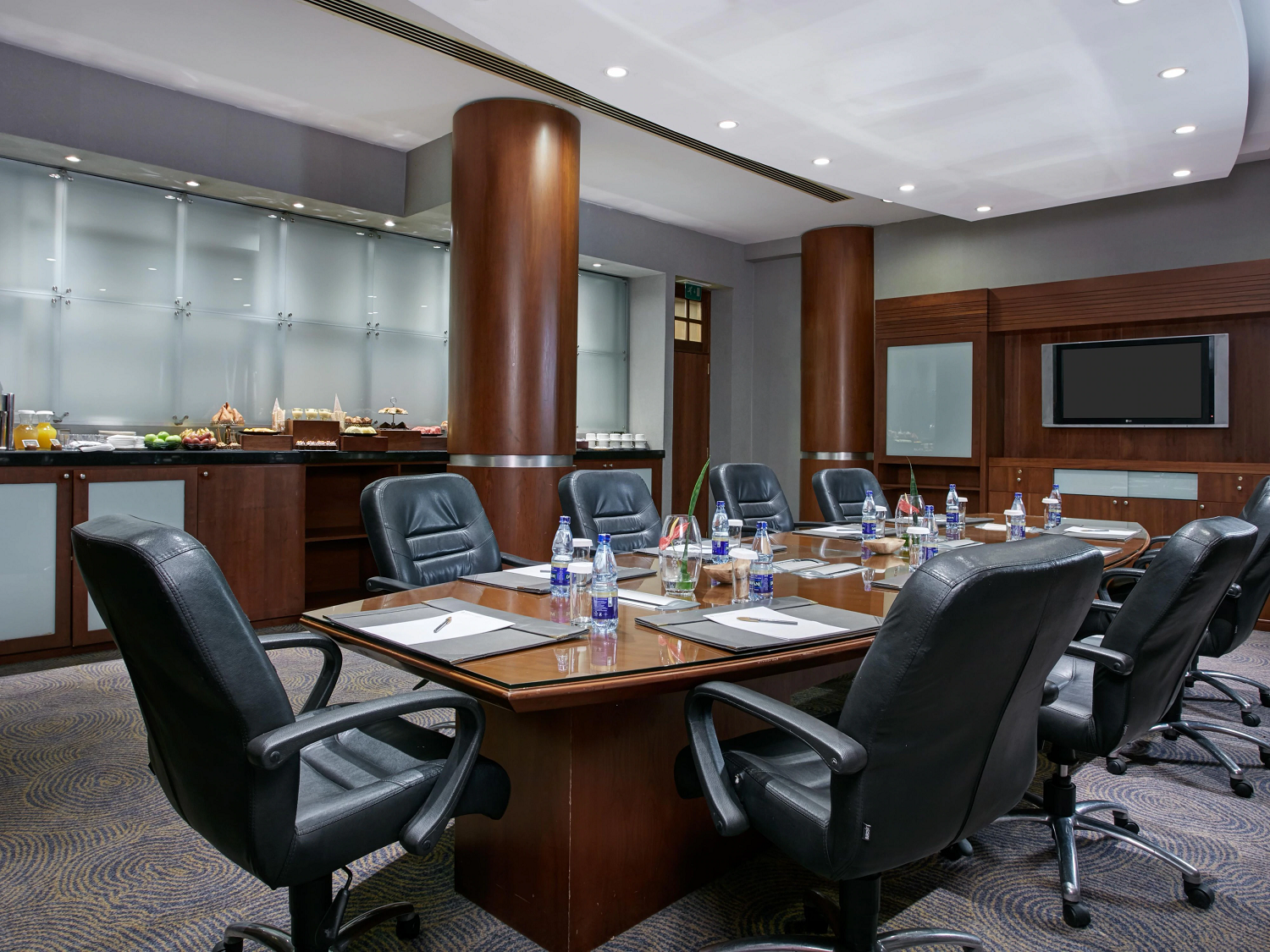Welfare services may be provided for matters concerning employees who are not immediately connected with their jobs although they may be connected generally with their place of work. These matters will include individual services relating to employees’ welfare such as private help with counseling on personal problems, assistance with problems of health or sickness and special services for retired employees.
Group services may include the provision of social and sporting activities and restaurants. Child-care facilities may be provided for individual employees but on a collective basis.
Organizations provide welfare facilities to their employees to keep their motivation levels high. The employee welfare schemes can be classified into two categories – that is, statutory and non-statutory welfare schemes. The statutory schemes are those schemes that are compulsory that are provided by an organization as compliance to the laws. These include provisions provided in labour laws. The non-statutory schemes differ from organization to organization and from industry to industry
Welfare facilities are an essential part of good working conditions. During the working day, a worker needs to drink water or some other beverage, to eat meals and snacks, to wash hands, to visit the lavatory, and to rest and recover from fatigue. Changing rooms and special work clothes may also be necessary.
Good welfare facilities contribute not only to the welfare of workers, but also to production and better relations. If workers are denied facilities to meet their needs, problems will eventually result.
The cost of welfare facilities is usually lower if the enterprise provides them than if workers pay for them individually. Repair and up-keep of welfare facilities is often ignored but very important.
A strong case for employee welfare services exists, and the real query is not why should organizations embrace welfare services but what type of welfare is appropriate. This needs to be discussed in general terms including the type of welfare services that can be provided and how they should be organized.
Welfare facilities cover a wide range of basic health, safety and welfare issues. They are intended to protect the health and safety of everyone in the workplace and to ensure that adequate welfare facilities are provided for people at work. Welfare facilities include the provision of drinking water, clothing, accommodation, resting and eating facilities as well as lavatory / sanitary and washing facilities.
Lavatory/sanitary conveniences must be provided for all employees to use. They do not necessarily have to be in the workplace but must be located in a position that is conveniently accessible for employees. Facilities must be well lit, ventilated, and of reasonable room temperature and be in a clean and working condition.
Washing facilities should also be provided within the vicinity of the sanitary / lavatory convenience and any changing facilities that are available. Washing facilities should include; clean hot or warm and cold running water, soap and towels (or equivalent).
Lighting should be sufficient to enable all people to work and move about safely. If necessary, local lighting should be provided. Lighting and light fittings should not create any hazard. Automatic emergency lighting should be provided where a sudden loss of light would create a risk.
Workplaces, furniture and fittings should be kept clean and should have enough free space to allow people to move about with ease.
There should be sufficient traffic routes, of sufficient width and headroom, to allow people to circulate safely and with ease. Floors and traffic routes should be sound and sufficiently illuminated and the relevant signage in place. Surfaces should not be uneven or slippery and should be kept free of obstructions, as should traffic routes. Avoid using these areas as temporary storage facilities as they often become permanent creating a hazard.
Sanitary facilities
The workplace should have good sanitary facilities. Clean toilets, washing facilities and shower rooms are important. In almost all countries, the provision of these facilities has been made obligatory through laws or regulations. It is necessary to provide a sufficient number of such facilities and to keep them clean.
These sanitary facilities are necessary for workers’ well-being and to prevent disease. Well-maintained sanitary facilities help to improve productivity because healthy workers are more efficient and there will also be less absenteeism. If work is hot and dirty or involves chemicals, it is necessary to provide shower or bathing facilities and good changing rooms.
Unfortunately, sanitary facilities are often neglected. They are often far from the worksite, insufficient in number and poorly maintained. Even though in many cultures people tend not to talk about toilets, these basic facilities are very important and need particular attention.
In general, improvements in sanitary facilities can be undertaken at low cost. When workplaces are built, good sanitary facilities can be included in the plan with a relatively small additional cost. It is often cheaper in the end to use materials which are durable, easily cleaned and quick in drying, such as tiles. Arrangements can be made to clean toilets and washing facilities frequently and maintain them in good repair at low cost
Beverages and meals
Facilities for beverages and meals are basic necessities. No worker can remain productive without drinking clean water or beverages or taking an adequate meal. Drinking water is essential for all types of work. Especially when working in a hot environment, much water is lost in the form of sweat or evaporation from the skin. Water loss in a hot climate can easily amount to several litres per shift. Workers, if not provided with drinking facilities, will have to make arrangements themselves or leave the workplace quite often looking for water.
When only unhygienic water is available, this can lead to frequent diseases. If workers become dehydrated, they rapidly tire and become less productive. Therefore, clean water should be provided in sufficient quantities near the worksite.
SEE ALSO >> The Mystery of Effective HR Procurement
Such water can be obtained from special purchases in containers, urban water supplies, wells or rain. Water obtained from wells or urban water supplies should be boiled or filtered if its quality is not certain. Cool drinking water should always be provided. In particular, water containers should not be left in the sun or in a hot place.
In many cases, it is the local practice to provide tea, coffee or other beverages. This is very desirable, but it does not replace the need to provide safe, cool drinking water as well. The volume of liquids which the worker needs is much larger than one or two cups of tea, especially for hot or strenuous work.
Facilities for meals can be provided in many ways. Enterprises employing more than 100-200 workers should have a canteen. Smaller enterprises can provide a simple canteen or make arrangements to provide meals with an outside agent. Cooking facilities can also be useful. If a canteen is too expensive, a separate lunchroom should be provided. Meals with balanced, nutritious food help maintain health and productivity.
Facilities for beverages and food can be made available at relatively low cost. Examples in this section include provision of cool drinking water, a tea corner, canteens using existing facilities or offering subsidised meals, delivery of packed lunches and arrangements for clean eating places.
Enterprise-based welfare services
Enterprise-based welfare services not only include directly work-related services, but also those aimed at amenities for everyday life outside working hours. They include child care facilities, recreational facilities and transport.
What an enterprise can do in these respects may be limited, but these facilities, if available, can greatly help create the feeling that management is interested in the workers as people. In fact, not only large enterprises but also many small and medium-sized enterprises provide these facilities in various forms.
As an example of such facilities available at very low cost, recreational facilities may be mentioned. Many workers enjoy spending their time in sports or other recreational activities during their lunch break or after work. This is healthy and increases the spirit of friendship. It helps workers feel that they are attached to the enterprise and have common interests as fellow workers.
Recreational facilities are often very inexpensive. A basketball hoop or volleyball net in a courtyard, or board games, may be all that is necessary. Smaller enterprises can benefit perhaps even more from these facilities as a greater proportion of the workers can participate.
Dormitories, child care facilities and transport may be provided depending on the number of workers, the location, the work schedule and other factors. They can effectively support the recruitment of workers, especially when these are not readily available.
Special care must be given to the quality of these facilities. Child care facilities should be clean, hygienic and well-ventilated. When transport facilities are provided through better co-ordination with public transport, private bus services or otherwise, they should be adequate and safe.
Welfare as a Requirement
There are opinions against providing of welfare services. They imply creating a good image of the organizations and the Human Resource Managers have spent many years trying to shake off its association with what it, and others, like to think of as at best fringe and at worst redundant welfare activities. The argument is that welfare is provided by Government services – why should business, commercial or public sector organizations replicate what is already there?
The private affairs of employees and their out-of-work interests should not be the concern of their employers. It is selfish to maintain large playing fields and sports pavilions if they are going to be used by a miniscule proportion of staff for a very limited period of time – the space and facilities could be better used by the community. The argument that the provision of employee welfare services increases the loyalty and motivation of employees has long been shattered. If such services are used at all, they are taken for granted. Gratitude, even if it exists, is not a motivating factor.
The case against employee welfare services is daunting; the last point is particularly telling and there is some truth in each of the others – although there are limits to their validity. Government welfare services are, in theory, available to all, but the ability of social workers to give individual advice, especially on problems arising from work, is limited in terms of both time and knowledge. It is all too easy for people to fall into the cracks existing in the decaying structure of the welfare state.
The case for providing employee welfare services rests mainly on the intangible grounds of the social responsibility of organizations for those who work in them. This is not paternalism. Rather, it is simply the realization that in exchange for offering their services, employees are entitled to rather more than their pay, benefits and healthy and safe systems of work.
They are also entitled to consideration as human beings, especially when it is remembered that many of their personal problems arise in the context of work and are best dealt with there. People’s worries and the resulting stress may well arise from work and their concerns about security, money, health, and relationships with others especially during the Covid-19 Corona Virus era.

But they also bring their personal problems to work; and many of these cannot be solved without reference to the situation there – they may require time off to deal with sick children or partners, or care for relatives, or advice on how to solve their problems and so minimize interference with their work.
The argument for employee welfare services at work is well put Staff spend at least half their waking time at work or in getting to it or leaving it. They know they contribute to the organization when they are reasonably free from worry, and they feel, perhaps inarticulately, that when they are in trouble, they are due to get something back from the organization. People are entitled to be treated as full human beings with personal needs, hopes and anxieties; they are employed as people; they bring themselves to work, not just their hands, and they cannot readily leave their troubles at home.
The societal argument for employee welfare services is the most persuasive one, but there is also an economic argument. Increases in morale or loyalty may not result in commensurate or, indeed, in any increases in productivity, but undue anxiety can result in reduced effectiveness. Even if welfare services cannot increase individual productivity, they can help to minimize decreases.
A further practical argument in favour of employee welfare services is that a reputation for showing concern helps to improve the image of the firm as a good employer and thus assists in recruitment. Welfare may not directly increase productivity, but it may increase commitment and help in the retention of key employees.
Statutory Welfare Benefits
Drinking Water: At all the working places safe hygienic drinking water should be provided.
Facilities for sitting: In every organization, especially factories, suitable seating arrangements are to be provided.
First aid appliances: First aid appliances are to be provided and should be readily assessable so that in case of any minor accident initial medication can be provided to the needed employee.
Latrines and Urinals: A sufficient number of latrines and urinals are to be provided in the office and factory premises and are also to be maintained in a neat and clean condition.
Canteen facilities: Cafeteria or canteens are to be provided by the employer so as to provide hygienic and nutritious food to the employees.
Spittoons: In every work place, such as ware houses, store places, in the dock area and office premises spittoons are to be provided in convenient places and same are to be maintained in a hygienic condition.
Lighting: Proper and sufficient lights are to be provided for employees so that they can work safely during the night shifts.
Washing places: Adequate washing places such as bathrooms, wash basins with tap and tap on the stand pipe are provided in the port area in the vicinity of the work places.
Changing rooms: Adequate changing rooms are to be provided for workers to change their cloth in the factory area and office premises. Adequate lockers are also provided to the workers to keep their clothes and belongings.
Rest rooms: Adequate numbers of restrooms are provided to the workers with provisions of water supply, wash basins, toilets, bathrooms, etc.
Maternity & Adoption Leave: Employees can avail maternity or adoption leaves. Paternity leave policies have also been introduced by various companies.
Medi-claim Insurance Scheme: This insurance scheme provides adequate insurance coverage of employees for expenses related to hospitalization due to illness, disease or injury or pregnancy.
Sexual Harassment Policy: To protect an employee from harassments of any kind, guidelines are provided for proper action and also for protecting the aggrieved employee.
Non-Statutory Benefits
Many non-statutory welfare benefits may include the following schemes:
Personal Health Care (Regular medical check-ups): Some of the companies provide the facility for extensive health check-up
Flexi-time: The main objective of the flexitime policy is to provide opportunity to employees to work with flexible working schedules. Flexible work schedules are initiated by employees and approved by management to meet business commitments while supporting employee personal life needs
Employee Assistance Programs: Various assistant programs are arranged like external counselling service so that employees or members of their immediate family can get counselling on various matters.
Employee Referral Scheme: In several companies employee referral scheme is implemented to encourage employees to refer friends and relatives for employment in the organization.













Thank you DAKTARI for the paperwork on welfare of employees . Suffice to say is staff well being should be of tantamount importance to employer and this moreso on the mental health visa a via the physical eg the sanitary facilities.When an employee is in good mental health his /her performance is at best and this can be guided by a counselor and therefore a counseling facilities should be engraved in the institution